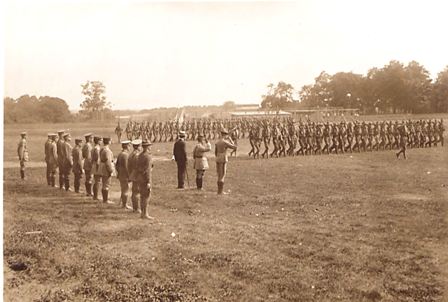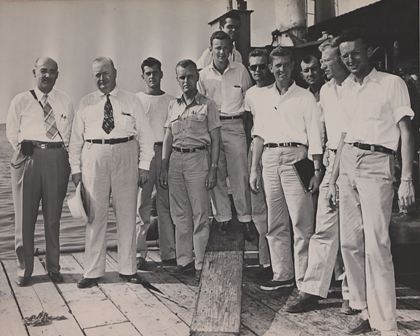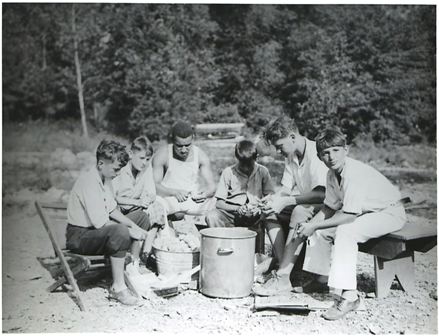

Geology 311B Oil Fields Trip to Weeks Island, LA (8/17/1948). Historical Photograph Collection: Campus Life Series, Box MP024.
Camps have been part of the Princeton summer experience since at least 1908, when university students under the direction of Professor L.H. Miller ‘1897 founded the Princeton Summer Camp at Beach Haven. A year later, the Philadelphian Society assumed responsibility for managing this camp for urban youths, which relocated first to Bayhead, then its current location of Blairstown, where it has evolved to today’s Princeton Blairstown Educational Center, now under University auspices. On campus, Princeton hosted the Princeton Cooperative School Program, an Upward Bound program for disadvantaged youths, from 1964-1976.

Princeton Education Center at Blairstown — Campers Peeling Potatoes (1934), Historical Photograph Collection: Campus Life Series, Box MP188
Princeton in the summer is certainly different than it is during the academic year, but that difference is vital for its academic life and mission. The students are given an opportunity to learn and grow in different ways. As one student commentator wrote:
"The realization of freedom from all College discipline, from recitations and lectures, is indeed pleasant. But how can we spend our vacation, while refraining from any severe course of study, yet not absolutely wasting our time? The question comes home to each one of us. We err just as much in pursuing a laborious course of study as in passing the Summer in idleness, else vacation would not be vacation… This aids our faculties of reasoning, of perception and of memory. A Summer well spent will repay us, and we will return with a consciousness of not having wasted three months."
–Summer Vacation, The Princetonian, vol 2, No 5, 21 June 1877
